Mineral Water
How to submit an article:
- Registered users can submit any published journal article that has a unique DOI (Digital Object Identifier) name or link to Research Hub.
- For example, you can paste the full DOI link:
https://doi.org/10.1109/5.771073or just the DOI name:10.1109/5.771073into the field above and click submit. - The person who is first to submit a valid article to Research Hub will forever be credited for it, and every article submission earns you +6 Research Points.
Related Topics
Published research studies are articles that present the findings of original research that has undergone a peer-review process and has been made publicly available in scholarly journals, books or other media.
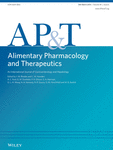
Systematic review and meta‐analysis: Foods, drinks and diets and their effect on chronic constipation in adults
2023 Oct 31 Alimentary Pharmacology & Therapeutics Van Der Schoot A, Katsirma Z, Whelan K, Dimidi E
Review Article Fruits Kiwifruit Rye Bread ConstipationFruits, especially kiwifruits, and rye bread can enhance bowel movements and help manage chronic constipation better than conventional dietary methods.
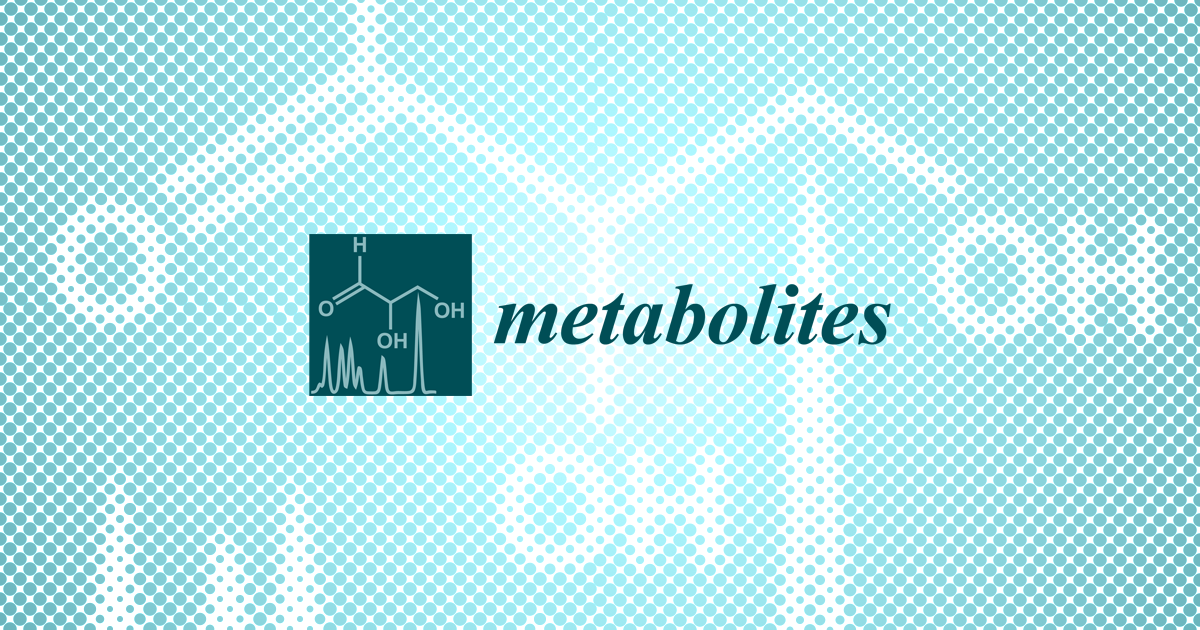
Supplementing Low-Sodium Bicarbonate–Calcic (Lete)® Water: Effects in Women on Bone and Systemic Metabolism
2023 Oct 24 Metabolites Marino C, Pagano I, Castaldo G, Grimaldi M, D’Elia M, Santoro A, et al.
Clinical Study Mineral Water Osteoporosis MenopauseConsuming bicarbonate-calcium mineral water, low in sodium, can help manage calcium imbalance and support bone health in perimenopausal women.

The еffects of low mineral content water on microbiota, metabolic, and oxidative stress parameters in patients with type 2 diabetes mellitus
2023 Aug Heliyon Jovicic N, Andjic M, Novakovic J, Jeremic N, Zivkovic V, Srejovic I, et al.
Cohort Study Intestinal Peristalsis Gut MicrobiotaConsuming “Sneznik-1/79” mineral water significantly improves intestinal health and reduces cholesterol in type 2 diabetes patients.

Exploring the Potential Benefits of Natural Calcium-Rich Mineral Waters for Health and Wellness: A Systematic Review
2023 Jul 13 Nutrients Pop MS, Cheregi DC, Onose G, Munteanu C, Popescu C, Rotariu M, et al.
Systematic Review Meta-Analysis Cardiovascular Disease High Blood Pressure Mineral Water Natural Calcium-rich mineral water Bone Health CalciumNatural calcium-rich mineral waters offer a bioavailable calcium source, beneficial for bone health, cardiovascular function, weight management, and overall well-being.

Natural Mineral Water and Diuresis: A Systematic Review
2023 Apr 17 International Journal of Environmental Research and Public Health Vitali M, Fontana M, De Giorgi A, Marotta D, Crucianelli S, Antonucci A, et al.
Systematic Review Mineral WaterConsumption of natural mineral water increases diuresis in both humans and animals, evident sometimes after just one intake.
Research insights are moderated by the Research Hub team and offer an at-a-glance overview of interesting research findings.

2023 Alimentary Pharmacology & Therapeutics
Fruits, especially kiwifruits, and rye bread can enhance bowel movements and help manage chronic constipation better than conventional dietary methods.
Review Article Constipation Fruits Kiwifruit Rye Bread
Systematic review and meta‐analysis: Foods, drinks and diets and their effect on chronic constipation in adults
Van Der Schoot A, Katsirma Z, Whelan K, Dimidi E

2023 Metabolites
Consuming bicarbonate-calcium mineral water, low in sodium, can help manage calcium imbalance and support bone health in perimenopausal women.
Clinical Study Menopause Osteoporosis
Supplementing Low-Sodium Bicarbonate–Calcic (Lete)® Water: Effects in Women on Bone and Systemic Metabolism
Marino C, Pagano I, Castaldo G, Grimaldi M, D’Elia M, Santoro A, et al.

2023 Heliyon
Consuming “Sneznik-1/79” mineral water significantly improves intestinal health and reduces cholesterol in type 2 diabetes patients.
Cohort Study Gut Microbiota Intestinal Peristalsis
The еffects of low mineral content water on microbiota, metabolic, and oxidative stress parameters in patients with type 2 diabetes mellitus
Jovicic N, Andjic M, Novakovic J, Jeremic N, Zivkovic V, Srejovic I, et al.

2023 Nutrients
Natural calcium-rich mineral waters offer a bioavailable calcium source, beneficial for bone health, cardiovascular function, weight management, and overall well-being.
Systematic Review Bone Health Calcium Cardiovascular Disease High Blood Pressure Natural Calcium-rich mineral water
Exploring the Potential Benefits of Natural Calcium-Rich Mineral Waters for Health and Wellness: A Systematic Review
Pop MS, Cheregi DC, Onose G, Munteanu C, Popescu C, Rotariu M, et al.

2023 International Journal of Environmental Research and Public Health
Consumption of natural mineral water increases diuresis in both humans and animals, evident sometimes after just one intake.
Systematic Review
Natural Mineral Water and Diuresis: A Systematic Review
Vitali M, Fontana M, De Giorgi A, Marotta D, Crucianelli S, Antonucci A, et al.
Review Articles
Review articles summarise and critically evaluate the current state of research on a specific topic or field by synthesising multiple primary research studies.

Systematic review and meta‐analysis: Foods, drinks and diets and their effect on chronic constipation in adults
2023 Oct 31 Alimentary Pharmacology & Therapeutics Van Der Schoot A, Katsirma Z, Whelan K, Dimidi E
Review Article Fruits Kiwifruit Rye Bread ConstipationFruits, especially kiwifruits, and rye bread can enhance bowel movements and help manage chronic constipation better than conventional dietary methods.

Exploring the Potential Benefits of Natural Calcium-Rich Mineral Waters for Health and Wellness: A Systematic Review
2023 Jul 13 Nutrients Pop MS, Cheregi DC, Onose G, Munteanu C, Popescu C, Rotariu M, et al.
Systematic Review Meta-Analysis Cardiovascular Disease High Blood Pressure Mineral Water Natural Calcium-rich mineral water Bone Health CalciumNatural calcium-rich mineral waters offer a bioavailable calcium source, beneficial for bone health, cardiovascular function, weight management, and overall well-being.

Natural Mineral Water and Diuresis: A Systematic Review
2023 Apr 17 International Journal of Environmental Research and Public Health Vitali M, Fontana M, De Giorgi A, Marotta D, Crucianelli S, Antonucci A, et al.
Systematic Review Mineral WaterConsumption of natural mineral water increases diuresis in both humans and animals, evident sometimes after just one intake.

Magnesium Sulfate-Rich Natural Mineral Waters in the Treatment of Functional Constipation–A Review
2020 Jul 10 Nutrients Dupont C, Hébert G
Review Article Constipation Mineral Water MagnesiumMagnesium sulfate-rich natural mineral waters are effective and safe as a natural treatment for functional constipation.

Metabolic Syndrome Features: Is There a Modulation Role by Mineral Water Consumption? A Review
2019 May 22 Nutrients Costa-Vieira D, Monteiro R, Martins MJ
Systematic Review Review Article Blood Sugar Triglyceride High Blood Pressure Metabolic Syndrome HDL-C Mineral WaterDrinking certain types of mineral water can positively influence metabolic syndrome factors like blood pressure, cholesterol, and blood sugar levels.
Clinical Trials
Clinical trials are research studies that involve people and are conducted to evaluate the safety and efficacy of new treatments or interventions, such as drugs, medical devices, or behavioural therapies.
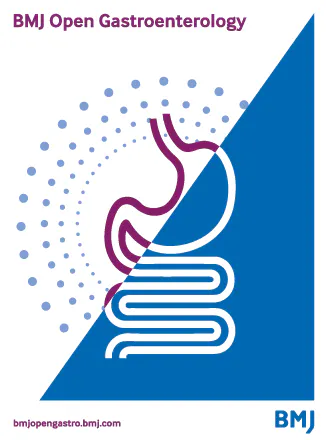
Heartburn relief with bicarbonate-rich mineral water: results of the randomised, placebo-controlled phase-III trial STOMACH STILL
2023 Feb BMJ Open Gastroenterology Labenz J, Anschütz M, Walstab J, Wedemeyer RS, Wolters H, Schug B
Randomised Controlled Trial Mineral WaterBicarbonate-rich mineral water “Staatl. Fachingen STILL” significantly reduces heartburn more effectively than placebo, improving patients’ quality of life.
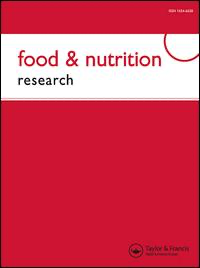
Effects of mineral waters on acid–base status in healthy adults: results of a randomized trial
2019 Dec 03 Food & Nutrition Research Wasserfurth P, Schneider I, Ströhle A, Nebl J, Bitterlich N, Hahn A
Clinical Study Randomised Controlled Trial Mineral Water Bicarbonate Acid Base StatusDrinking at least 1.5 to 2 litres of bicarbonate-rich mineral water daily significantly reduces dietary acid load in healthy adults.
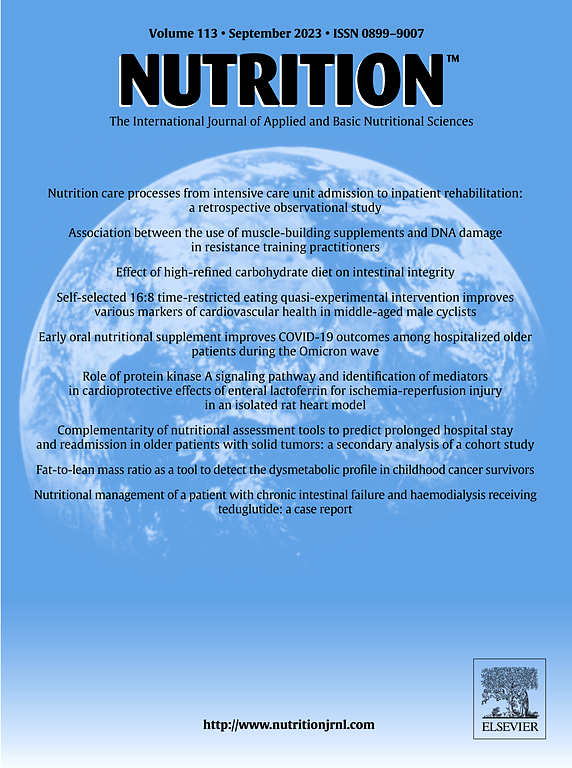
Time to treatment response of a magnesium- and sulphate-rich natural mineral water in functional constipation
2019 Sep Nutrition Dupont C, Constant F, Imbert A, Hébert G, Zourabichvili O, Kapel N
Clinical Study Randomised Controlled Trial Sulphate Mineral Water Magnesium ConstipationHépar mineral water, rich in sulphates and magnesium, effectively treats functional constipation, showing significant results within 7 days.

An Intervention with Mineral Water Decreases Cardiometabolic Risk Biomarkers. A Crossover, Randomised, Controlled Trial with Two Mineral Waters in Moderately Hypercholesterolaemic Adults
2016 Jun 28 Nutrients Toxqui L, Vaquero M
Clinical Study Randomised Controlled Trial LDL Cholesterol Mineral Water Blood SugarDrinking 1litre of mineral water daily with meals can reduce risk factors for heart and metabolic diseases, particularly when replacing sugary drinks.
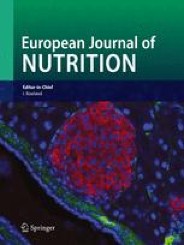
Efficacy and safety of a natural mineral water rich in magnesium and sulphate for bowel function: a double-blind, randomized, placebo-controlled study
2015 Nov 18 European Journal of Nutrition Bothe G, Coh A, Auinger A
Randomised Controlled Trial Sulphate Magnesium Mineral WaterDrinking natural mineral water rich in magnesium sulphate and sodium sulphate daily improves bowel movement frequency and stool consistency in people with functional constipation.
Study Protocols
Published study protocols are detailed plans that outline the objectives, methodology, statistical analyses, and organisation of a research study that have been made publicly available for others to review and use as a reference.
Presentation Slides

Review Article
Fruits, especially kiwifruits, and rye bread can enhance bowel movements and help manage chronic constipation better than conventional dietary methods.
Van Der Schoot A, Katsirma Z, Whelan K, Dimidi E

Clinical Study
Consuming bicarbonate-calcium mineral water, low in sodium, can help manage calcium imbalance and support bone health in perimenopausal women.
Marino C, Pagano I, Castaldo G, Grimaldi M, D’Elia M, Santoro A, Conte A, Molettieri P, Parisella C, Buonocore M, D’Ursi AM, Rastrelli L

Cohort Study
Consuming “Sneznik-1/79” mineral water significantly improves intestinal health and reduces cholesterol in type 2 diabetes patients.
Jovicic N, Andjic M, Novakovic J, Jeremic N, Zivkovic V, Srejovic I, Stanojevic D, Ristic P, Bolevich S, Jakovljevic V

Systematic Review
Natural calcium-rich mineral waters offer a bioavailable calcium source, beneficial for bone health, cardiovascular function, weight management, and overall well-being.
Pop MS, Cheregi DC, Onose G, Munteanu C, Popescu C, Rotariu M, Turnea MA, Dograru G, Ionescu EV, Oprea D, Iliescu MG, Minea M, Stanciu LE, Silișteanu SC, Oprea C

Systematic Review
Consumption of natural mineral water increases diuresis in both humans and animals, evident sometimes after just one intake.
Vitali M, Fontana M, De Giorgi A, Marotta D, Crucianelli S, Antonucci A, Protano C

Randomised Controlled Trial
Bicarbonate-rich mineral water “Staatl. Fachingen STILL” significantly reduces heartburn more effectively than placebo, improving patients’ quality of life.
Labenz J, Anschütz M, Walstab J, Wedemeyer RS, Wolters H, Schug B
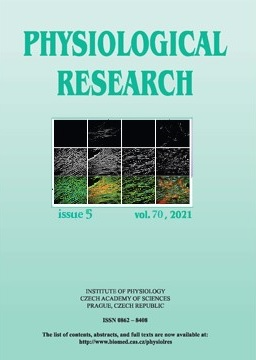
Experimental Study
Vincentka natural mineral water reduces gastric damage and improves antioxidant capacity in an animal model of acute gastric ulcers.
BUDINSKAYA K, NÁDENÍČEK J, STRAČINA T, HENDRYCH M, PÍREK O, BARTÁKOVÁ A, ŠUDÁKOVÁ M, SVÍZELA V, NOVÁKOVÁ Z, NOVÁKOVÁ M, BABULA P

Animal Study
Certain natural mineral waters, when combined with a low-calorie diet, effectively reduce cholesterol and glucose levels in mice with metabolic syndrome.
Narciso L, Martinelli A, Torriani F, Frassanito P, Bernardini R, Chiarotti F, Marianelli C
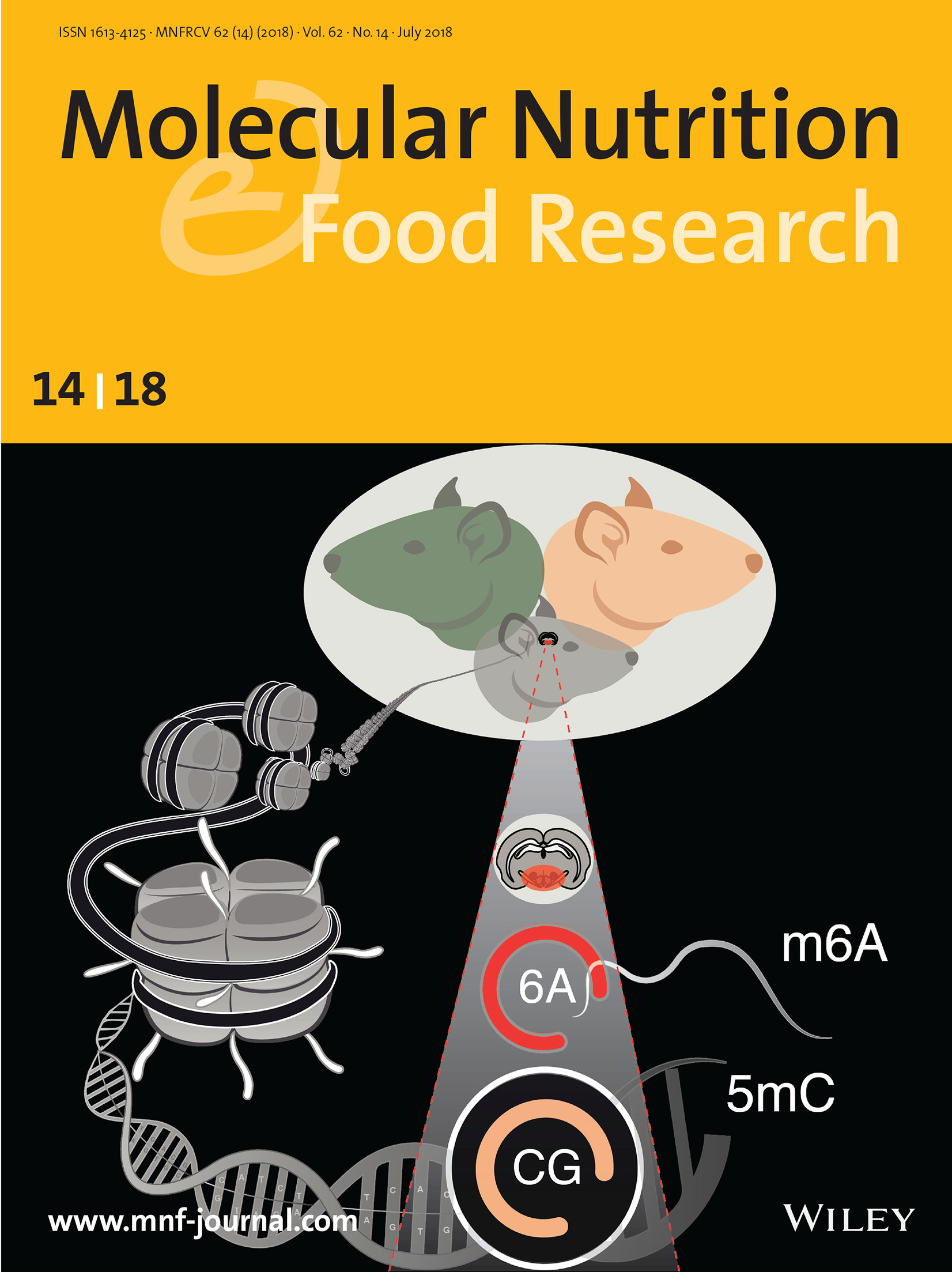
Experimental Study
Boron-rich mineral and medicinal waters can significantly increase boron accumulation in fruit flies and humans, largely elevating their boron status.
Seidel U, Haegele FA, Baumhof E, Jans K, Seidler Y, Kremer D, Bakker SJL, Birringer M, Lüersen K, Bosy‐Westphal A, Rimbach G
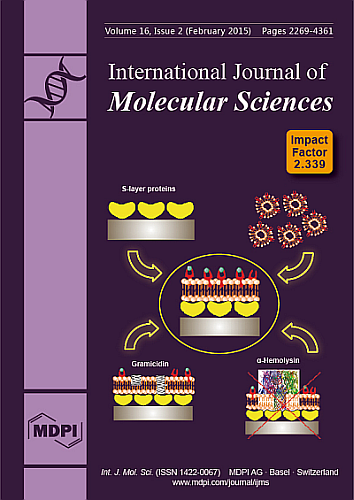
Experimental Study
Two French natural mineral waters (NMW1 and NMW2) show anti-inflammatory effects and can reduce intestinal inflammation in mice with induced colitis.
Barnich N, Rodrigues M, Sauvanet P, Chevarin C, Denis S, Le Goff O, Faure-Imbert D, Hanh T, Roques CF, Chassaing B, Alric M
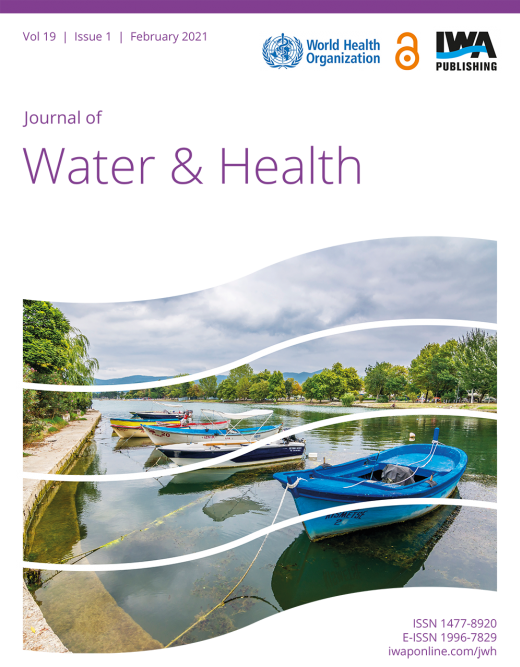
Experimental Study
Mineral water increases the diversity of gut microbiota by aiding the growth of Bacteroidetes taxa.
Zhou K, Liu W, Chen Z, Yang D, Qiu Z, Feng H, Li C, Jin M, Li J, Xu Q, Shen Z
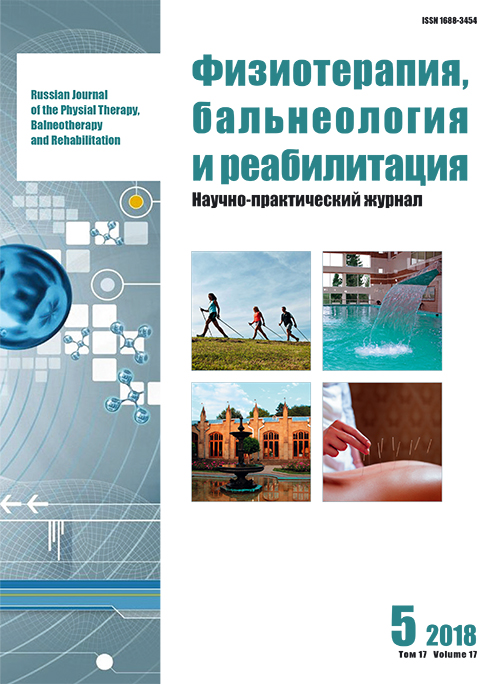
Clinical Study
Magnesium-rich mineral water effectively treats and prevents constipation in children, leading to regular, painless bowel movements.
Kulikov AG, Zakharova IN, Tvorogova TM, Stepurina LL, Elezova LI

Review Article
Magnesium sulfate-rich natural mineral waters are effective and safe as a natural treatment for functional constipation.
Dupont C, Hébert G

Clinical Study
Drinking at least 1.5 to 2 litres of bicarbonate-rich mineral water daily significantly reduces dietary acid load in healthy adults.
Wasserfurth P, Schneider I, Ströhle A, Nebl J, Bitterlich N, Hahn A
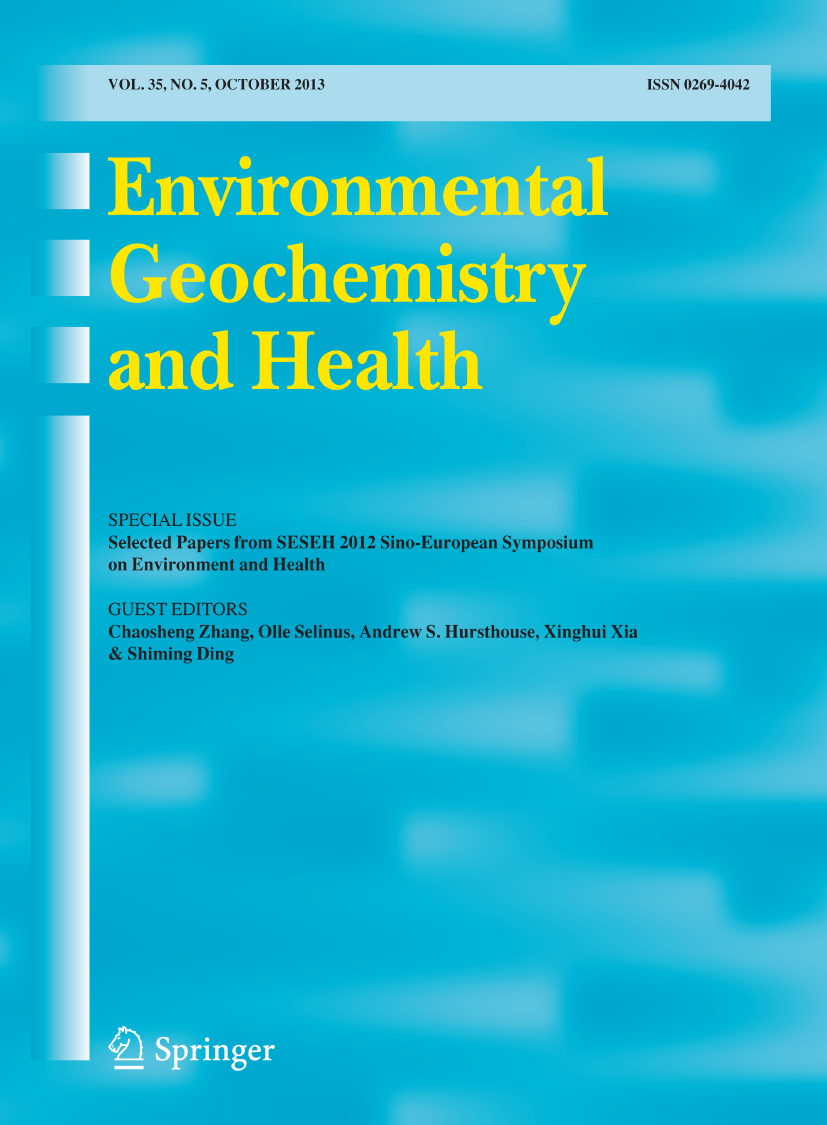
Cohort Study
Caramanico Terme’s mineral water treatment significantly improves health and reduces the risk of major diseases like cardiovascular, cancer, and neurological conditions.
Di Marco M, De Novellis AMP, Carluccio V, Bozzelli R, Orlando M, Lanuti P

Clinical Study
Hépar mineral water, rich in sulphates and magnesium, effectively treats functional constipation, showing significant results within 7 days.
Dupont C, Constant F, Imbert A, Hébert G, Zourabichvili O, Kapel N

Systematic Review
Drinking certain types of mineral water can positively influence metabolic syndrome factors like blood pressure, cholesterol, and blood sugar levels.
Costa-Vieira D, Monteiro R, Martins MJ

Clinical Study
Drinking 1litre of mineral water daily with meals can reduce risk factors for heart and metabolic diseases, particularly when replacing sugary drinks.
Toxqui L, Vaquero M
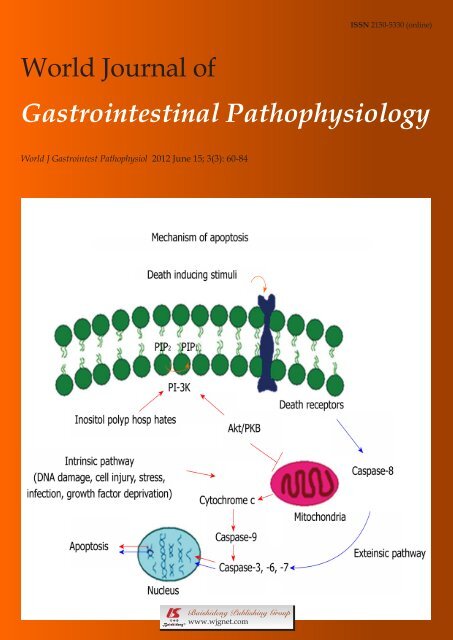
Clinical Study
Hydrogen carbonate-rich mineral water significantly reduces heartburn frequency and severity, improving quality of life with excellent tolerability.
Beer AM
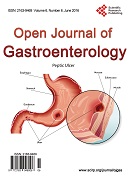
Clinical Study
Drinking hydrogen carbonate-rich mineral water significantly reduces heartburn episodes and improves quality of life in individuals with dyspeptic symptoms.
Pohl U, Auinger A, Bothe G, Uebelhack R

Randomised Controlled Trial
Drinking natural mineral water rich in magnesium sulphate and sodium sulphate daily improves bowel movement frequency and stool consistency in people with functional constipation.
Bothe G, Coh A, Auinger A
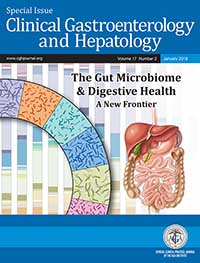
Randomised Controlled Trial
Drinking 1 liter of Hépar, a magnesium sulfate-rich mineral water, daily reduces constipation and hard or lumpy stools more effectively than low-mineral water in women.
Dupont C, Campagne A, Constant F
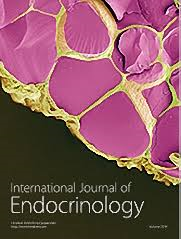
Animal Study
Regular intake of mineral-rich water, high in sodium bicarbonate, potassium, calcium, and magnesium, potentially reduces risk of Metabolic Syndrome and atherosclerotic cardiovascular disease.
Pereira CD, Severo M, Araújo JR, Guimarães JT, Pestana D, Santos A, Ferreira R, Ascensão A, Magalhães J, Azevedo I, Monteiro R, Martins MJ

Randomised Controlled Trial
Drinking mineral water, especially those high in magnesium, helps lower blood pressure among individuals with borderline hypertension and low calcium or magnesium excretion.
Rylander R, Arnaud MJ
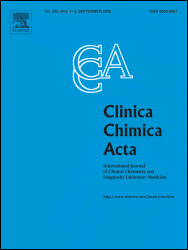
Clinical Study
Migraine patients exhibit lower intracellular magnesium levels, which can be increased by consuming magnesium-rich mineral water, demonstrating its bioavailability.
Thomas J, Millot JM, Sebille S, Delabroise AM, Thomas E, Manfait M, Arnaud MJ
Executive Summary
Write an executive summary in the form of a blog article on the topic of "Research into Chinese medicine treatment for Mineral Water" summarising the research below and using language that can be easily understood by patients and avoiding medical jargon using a professional and caring tone of voice.
Write an executive summary in the form of a blog article on the topic of "Researched Chinese medicine treatments for Mineral Water" summarising the research below in an objective and easy to understand way, and using language that can be easily understood by patients. Group the article into Chinese medicine treatments first, followed by nutrition and other treatments. Avoid using medical jargon and use a professional and caring tone of voice.
Write me a concise but easy to understand executive summary on the topic of "Chinese medicine treatments for Mineral Water" based on the following research that I will give you. Your summary should be 2 paragraphs long in Australian English spelling and include references to the studies.
A Review Article published in 2023 in the journal Alimentary Pharmacology & Therapeutics found that Fruits, especially kiwifruits, and rye bread can enhance bowel movements and help manage chronic constipation better than conventional dietary methods. An exhaustive analysis was conducted incorporating a multitude of studies, including randomized controlled trials and uncontrolled trials, identified through electronic databases till 12th July 2023. The effect of various foods, drinks, and diets on characteristics such as stool output, gut transit time, symptoms, quality of life, adverse events, and compliance in adults with chronic constipation was inspected. The study also examined the response to different treatments and included a variety of foods such as kiwifruit, high-mineral water, prunes, rye bread, mango, fig, cereal, oat bran, yoghurt, water supplementation, prune juice, and high-fibre or no-fibre diets. The synthesized data revealed that the consumption of fruits, particularly kiwifruits, and rye bread led to a higher stool frequency when compared to standard treatments like psyllium or white bread. High-mineral water also proved more effective regarding response to treatment than low-mineral water. On the other hand, no distinctive difference was identified for prunes when set against psyllium as a treatment option. Overall, the study insightfully suggests dietary modifications as a means to manage chronic constipation, emphasizing the potential of fruits such as kiwifruits and rye bread.
A Clinical Study published in 2023 in the journal Metabolites found that Consuming bicarbonate-calcium mineral water, low in sodium, can help manage calcium imbalance and support bone health in perimenopausal women. The study involved 120 perimenopausal women who consumed 2 liters of a specific bicarbonate-calcium mineral water (Lete) daily for six months. This water was chosen because it is rich in calcium and bicarbonate but low in sodium. The study aimed to determine the impact of this water on bone health and overall metabolism. The participants’ urine and blood serum were analyzed using NMR-based metabolomic procedures. These analyses were conducted to assess the effects of the water not only on calcium metabolism but also on the broader systemic metabolism. The findings indicated that the Lete water effectively compensated for calcium dysmetabolism and supported bone health and integrity in perimenopausal women. While the study primarily focused on bone metabolism, it also provided insights into the potential system-wide metabolic effects of this specific type of mineral water. This suggests that such water could be a valuable dietary supplement for addressing calcium-related metabolic issues, particularly in perimenopausal women.
A Cohort Study published in 2023 in the journal Heliyon found that Consuming “Sneznik-1/79” mineral water significantly improves intestinal health and reduces cholesterol in type 2 diabetes patients. The study involved 60 patients with confirmed Type 2 Diabetes, who drank “Sneznik-1/79” mineral water from Serbia daily for 28 days. Researchers conducted standard biochemical tests, including glucose level, lipid profile, and stool analysis. Additionally, blood samples were taken to assess the impact of the water on oxidative stress markers. Post consumption of “Sneznik-1/79” water, a substantial decrease in total cholesterol levels was noted. Notably, all patients experienced regular daily bowel movements, indicating improved intestinal peristalsis. Half of the participants showed elimination of dysbiosis. Furthermore, there was an increase in antioxidants like superoxide dismutase and reduced glutathione, suggesting enhanced antioxidant capacity. The study highlights “Sneznik-1/79” water as a potential complementary treatment for improving gut health and reducing cholesterol in Type 2 Diabetes patients.
A Systematic Review published in 2023 in the journal Nutrients found that Natural calcium-rich mineral waters offer a bioavailable calcium source, beneficial for bone health, cardiovascular function, weight management, and overall well-being. This systematic review analyzed peer-reviewed articles, clinical trials, and experimental studies from the past decade. It focused on the health benefits of calcium-rich mineral waters, especially for individuals with lactose intolerance or on plant-based diets. The review process assessed the contribution of these waters to daily calcium intake and their bioavailability compared to other calcium sources. The review found that natural mineral waters high in calcium can significantly enhance calcium intake, with improved absorption rates. These waters show promise in promoting bone health and cardiovascular function, including potential reductions in blood pressure and cardiovascular disease risk. Some evidence suggests benefits in weight management. However, the review highlighted the need for further research on interactions with other dietary components, effects on specific health conditions, and long-term consumption impacts. Despite these gaps, calcium-rich mineral waters are recognized as a valuable dietary calcium source for a diverse population.
A Systematic Review published in 2023 in the journal International Journal of Environmental Research and Public Health found that Consumption of natural mineral water increases diuresis in both humans and animals, evident sometimes after just one intake. This systematic review, adhering to PRISMA guidelines, evaluated the diuretic effects of natural mineral water on healthy individuals. Comprehensive searches were conducted in PubMed, Scopus, Web of Science, and Cochrane Library up to November 2022, including both human and animal studies. A total of 12 studies were identified, predominantly from Italy and one from Bulgaria, covering publications from 1962 to 2019 for human studies and 1967 to 2001 for animal studies. All included studies consistently reported an increase in diuresis following the consumption of natural mineral water, with some studies observing this effect after a single administration. However, the quality of these studies, especially the older ones, was noted to be suboptimal. The review underscores the need for newer clinical studies with improved methodological approaches and advanced statistical data processing to validate these findings more robustly.
A Randomised Controlled Trial published in 2023 in the journal BMJ Open Gastroenterology found that Bicarbonate-rich mineral water “Staatl. Fachingen STILL” significantly reduces heartburn more effectively than placebo, improving patients’ quality of life. The STOMACH STILL trial, a multicentre, double-blind, randomized, placebo-controlled study, assessed the effectiveness of Staatl. Fachingen STILL mineral water in relieving heartburn. Adult patients with frequent heartburn episodes for at least six months, but without severe reflux oesophagitis, were recruited. They consumed 1.5 liters per day of either the mineral water (verum) or placebo for six weeks. Primary endpoint was a reduction of at least five points in the Reflux Disease Questionnaire score for heartburn. Secondary endpoints included overall symptom reduction, health-related quality of life measures (QOLRAD), rescue medication intake, and safety/tolerability. Of the 148 patients randomized, 143 completed the trial. The responder rate was significantly higher in the mineral water group (84.72%) compared to the placebo group (63.51%). Significant improvements were observed in the ‘heartburn’ dimension and overall Reflux Disease Questionnaire scores for the mineral water group. Additionally, three out of five Quality of Life in Reflux and Dyspepsia domains showed improvement: ‘food/drink problems,’ ‘emotional distress,’ and ‘vitality.’ The verum group also reported a decrease in rescue medication use. Only three patients experienced treatment-related adverse events. The study concluded that Staatl. Fachingen STILL mineral water is superior to placebo in relieving heartburn and enhancing health-related quality of life.
A Experimental Study published in 2022 in the journal Physiological Research found that Vincentka natural mineral water reduces gastric damage and improves antioxidant capacity in an animal model of acute gastric ulcers. This pilot study involved 16 male Wistar rats, divided into two groups: an experimental group and a control group, each with eight rats. The study was conducted in three phases: a 7-day handling phase, a 7-day phase where the experimental group received Vincentka mineral water and the control group received tap water, and a final phase of acute gastritis induction lasting one day. After 24 hours post-induction, the animals were sacrificed for analysis. Tissue samples from the stomach and duodenum, as well as blood samples, were examined using histological microscopy, immunohistochemical, and biochemical methods. The histopathological analysis showed significantly less damage to the stomach lining in the experimental group compared to the control group. There were notable differences in blood plasma antioxidant capacity, oxidative stress parameters, and other biochemical values between the groups. These findings indicate that Vincentka mineral water positively affects the development and symptoms of acute gastric ulcers in this animal model, suggesting potential benefits for similar human conditions.
A Animal Study published in 2022 in the journal Frontiers in Nutrition found that Certain natural mineral waters, when combined with a low-calorie diet, effectively reduce cholesterol and glucose levels in mice with metabolic syndrome. The study involved 125 male and female C57BL/6 mice. Ten mice were kept as a healthy control group, fed a standard diet with tap water. The remaining 115 mice were fed a high-calorie diet (60% fat, 10% fructose in water) for four months to induce metabolic syndrome, followed by a two-month treatment phase with a low-calorie diet and various types of natural mineral water (NMW). The mice were divided into six treatment groups, each receiving a different NMW, and a control group receiving tap water. The study monitored body weight and blood biochemistry over six months. After four months on a high-calorie diet, both male and female mice developed obesity, high cholesterol, and high blood sugar, with males showing greater increases. During the treatment phase, NMWs rich in sulphate, magnesium, bicarbonate, and minimally mineralized water, along with a low-calorie diet, significantly lowered total cholesterol, HDL cholesterol, and glucose levels. Sex differences were observed during both the induction and treatment phases. These findings indicate that specific NMWs, in conjunction with a low-calorie diet, may help manage blood lipid and glucose levels in metabolic syndrome, although further research is needed to confirm these results in humans.
A Experimental Study published in 2021 in the journal Molecular Nutrition & Food Research found that Boron-rich mineral and medicinal waters can significantly increase boron accumulation in fruit flies and humans, largely elevating their boron status. The researchers used inductively coupled mass spectrometry to analyze boron concentrations in 381 types of German mineral and medicinal waters, with the highest concentrations found in waters from southwest Germany. They associated the boron content with the concentration of several other bulk elements, including calcium, potassium, magnesium, and sodium. After selecting mineral waters with varying boron content - low, medium, or high - exposure experiments were conducted on fruit flies and humans. Attributed to drinking boron-rich waters, there was a higher accumulation of boron observed. In fruit flies, this build-up of boron mainly occurred in the exoskeleton. Meanwhile in humans, an increase in serum boron and 24-hour urinary boron excretion was recorded. The data provided strong indications that the boron status in both fruit flies and humans could be enhanced through the intake of such boron-rich waters.
A Experimental Study published in 2021 in the journal International Journal of Molecular Sciences found that Two French natural mineral waters (NMW1 and NMW2) show anti-inflammatory effects and can reduce intestinal inflammation in mice with induced colitis. The study investigated the anti-inflammatory effects of two French natural mineral waters (NMWs) - NMW1 (rich in calcium, magnesium, sodium, carbon, and iron) and NMW2 (mainly bicarbonate) - on intestinal inflammation. Intestinal epithelial cells were stimulated with heat-inactivated Escherichia coli or hydrogen peroxide and then treated with NMWs. Additionally, moderate colitis was induced in Balbc/J mice using 1% dextran sulfate sodium. These mice were then given either NMW1, NMW2, or control water. The study assessed general symptoms, histological features of colitis, fecal lipocalin-2 levels, pro-inflammatory KC cytokine levels, and the global mucosa-associated microbiota. Both NMW1 and NMW2 showed anti-inflammatory effects in treated intestinal cells. In the colitis-induced mice, NMW1 notably reduced inflammation, evidenced by lower disease activity scores, reduced fecal lipocalin-2, decreased release of pro-inflammatory KC cytokines, and smaller intestinal epithelial lesions. NMW1 also helped in maintaining the normal state of mucosa-associated microbiota. These findings suggest the potential of these NMWs in managing inflammatory bowel disease through modulating gut microbiota.
A Experimental Study published in 2020 in the journal Journal of Water and Health found that Mineral water increases the diversity of gut microbiota by aiding the growth of Bacteroidetes taxa. The researchers carried out the study on BALB/c mice, focusing specifically on the bacterial community in their feces and how it responds to different types of drinking water. These types included commercial bottled mineral water, natural water, purified water, and tap water. After culturing the feces in a combination of brain heart infusion broth dissolved in the four water types, they conducted a 16S rRNA gene analysis to study the bacterial composition. The bacterial composition varied significantly between the four different types of drinking water. Over time, the overall number of Operational Taxonomic Units (OTUs) decreased, with the exception of cultures grown in mineral water under aerobic conditions. Under these conditions, by the fifth day, alpha diversity differences were particularly noticeable when comparing mineral water with the other types. The most unique taxa were found within the mineral water group. Notably, the Bacteroidetes taxa showed the most significant differences, dominating in the mineral water compared to the other types of water. This indicates that using mineral water as a culture medium could lead to a progressive increase in gut microbiota diversity.
A Clinical Study published in 2020 in the journal Russian Journal of Physiotherapy, Balneology and Rehabilitation found that Magnesium-rich mineral water effectively treats and prevents constipation in children, leading to regular, painless bowel movements. This randomized, prospective, open, comparative study involved 95 children and adolescents aged 10-16 years with functional constipation. They received sanatorium therapy for 18 days, including a sparing-exercise regimen, therapeutic nutrition, health-improving massage, and physiotherapy exercises. Participants were divided into two groups: Group 1 (55 patients) received basic treatment plus magnesium-containing mineral water, while Group 2 (40 patients) received only basic treatment. The study assessed the frequency and nature of defecation, vegetative status, and functional body reserves. By day 5, 49% of Group 1 patients achieved daily defecation, increasing to 89.1% by the end of treatment. In contrast, only 55% of Group 2 showed positive changes by the end. The mineral water group also had softer, pain-free bowel movements, with most achieving a morning defecation reflex after consuming the water. The control group saw less significant changes in defecation nature, with only 18% reaching softer bowel movements by the end of treatment. The results indicate the effectiveness and safety of magnesium-containing mineral water in treating and preventing functional constipation in children.
A Review Article published in 2020 in the journal Nutrients found that Magnesium sulfate-rich natural mineral waters are effective and safe as a natural treatment for functional constipation. This paper reviews clinical data on the efficacy of magnesium sulfate-rich natural mineral waters in treating functional constipation (FC), a chronic type of constipation with no identifiable physiological, anatomical, or iatrogenic causes. The condition is known to significantly affect patients’ quality of life and increase healthcare costs. The study examines the historical use of magnesium sulfate in treating FC and its longstanding recognition for laxative properties, especially in the context of magnesium sulfate-rich mineral waters. The review highlights that, despite the long history of using magnesium sulfate-rich mineral waters for their laxative effects, clinical studies specifically demonstrating their effectiveness in FC were scarce before the 21st century. The collected data indicate that these mineral waters are not only effective in treating FC but also safe, positioning them as a viable natural treatment option for this condition.
A Clinical Study published in 2019 in the journal Food & Nutrition Research found that Drinking at least 1.5 to 2 litres of bicarbonate-rich mineral water daily significantly reduces dietary acid load in healthy adults. The study was a single-centered, randomized trial involving 129 healthy men and women aged 18 to 75. Participants were assigned to consume 1,500–2,000 mL daily of one of four types of mineral water, varying in bicarbonate content and potential renal acid load (PRAL), for four weeks. The types were: low bicarbonate, high PRAL; medium-high bicarbonate, medium PRAL; high bicarbonate, low PRAL; and medium-high bicarbonate, low PRAL. Participants maintained their usual diets, and the primary measurement was net acid excretion (NAE) in 24-hour urine output. The study found that consuming the three types of mineral water with higher bicarbonate content (medium-high and high) and lower PRAL (medium and low) significantly decreased NAE values. The greatest reduction was seen with high bicarbonate, low PRAL water, indicating a substantial decrease in dietary acid load. This was also accompanied by a slight increase in serum bicarbonate levels in the groups consuming high and medium-high bicarbonate, low PRAL water.
A Cohort Study published in 2019 in the journal Environmental Geochemistry and Health found that Caramanico Terme’s mineral water treatment significantly improves health and reduces the risk of major diseases like cardiovascular, cancer, and neurological conditions. The study conducted an epidemiological analysis of 370 subjects who received crenotherapy (treatment with medicinal mineral water) at Caramanico Terme in Italy, compared to 287 untreated control subjects. This location is known for its sulfurous and oligomer medicinal mineral waters. Participants’ health outcomes were observed, including relapses of pathology, symptom manifestation, and drug use. The study particularly focused on a subgroup who had undergone crenotherapy for over five years, comparing their health outcomes with age and gender-matched untreated individuals. The study found that those undergoing crenotherapy experienced significantly reduced pathology relapses, symptom manifestations, and need for medications. Particularly notable was the subgroup treated for over five years, showing a significantly lower prevalence of various major diseases, including cardiovascular, inflammatory, neurological, and cancer conditions, compared to untreated subjects. The study suggests both short-term and long-term health benefits from the Caramanico Terme’s medicinal mineral water, including improved life quality and reduced likelihood of developing major disabling pathologies.
A Clinical Study published in 2019 in the journal Nutrition found that Hépar mineral water, rich in sulphates and magnesium, effectively treats functional constipation, showing significant results within 7 days. In this multicenter, randomized, double-blind, controlled study, 226 outpatients with functional constipation were evaluated. Participants underwent a washout period before consuming 1.5 liters of water daily for 14 days, of which 1 liter was either Hépar or low-mineral water. Patients self-reported stool consistency daily, and an expert investigator, blinded to the treatment groups, evaluated stool consistency using the Bristol stool scale based on patient-provided photographs. The study successfully met its primary endpoint, with 50% of participants in the Hépar group responding to treatment by day 14, compared to 29% in the control group. The average time to observe a treatment response was 6.4 days for Hépar users, shorter than the 7.3 days in the control group. Approximately 60% of patients provided stool scores, with 79% of these scores closely aligning between patients and experts. The safety analysis of Hépar indicated excellent results, confirming its efficacy and safety in treating functional constipation.
A Systematic Review published in 2019 in the journal Nutrients found that Drinking certain types of mineral water can positively influence metabolic syndrome factors like blood pressure, cholesterol, and blood sugar levels. This review examined 20 studies sourced from PubMed, Scopus, and Google Scholar on how mineral water consumption affects metabolic syndrome (MetSyn) features. The studies varied in their approach, including the type and composition of mineral water, the amount consumed, dietary factors, and study duration. Both human and animal studies were included, with diverse population sizes and characteristics. The research focused on several MetSyn aspects: blood pressure (BP), total triglycerides, HDL-cholesterol, glucose levels, and waist circumference (WC). The review found that certain types of mineral water had beneficial effects on blood pressure, total triglycerides, HDL-cholesterol, and glucose levels, although no significant influence on waist circumference was reported. The presence of specific minerals, elements, and active ions or molecules in the water, along with their pH levels, appeared crucial in counteracting metabolic dysfunctions and the increased acid load in diets associated with MetSyn. The studies discussed various molecular and physiological mechanisms behind these effects. However, further research is needed to fully understand the mechanisms by which mineral water consumption might protect against MetSyn features.
A Clinical Study published in 2016 in the journal Nutrients found that Drinking 1litre of mineral water daily with meals can reduce risk factors for heart and metabolic diseases, particularly when replacing sugary drinks. This randomized-controlled crossover trial involved 64 adults with moderate hypercholesterolemia. Participants were assigned to consume 1 liter per day of either sodium-bicarbonated mineral water (BW) or control mineral water low in minerals (CW) alongside their main meals for eight weeks. This was followed by an eight-week washout period. The study measured various cardiometabolic risk biomarkers including blood lipids, glucose, insulin, aldosterone, urine pH, urinary electrolytes, blood pressure, body weight, and overall fluid, energy, and nutrient intake from diet and beverages. The intervention led to a decrease in total cholesterol, LDL cholesterol, and glucose levels, with a trend towards lower oxidized LDL. Apolipoprotein B increased, but there was no significant difference between the types of water consumed. The study also observed a decrease in energy and carbohydrate intake from beverages, attributed to a reduction in soft drink and fruit juice consumption. BW specifically increased urinary pH and reduced calcium/creatinine excretion, indicating a moderate alkalizing effect on the body, without impacting blood pressure. Overall, consuming 1 liter of mineral water daily appeared to reduce cardiometabolic risk biomarkers, likely due to the replacement of sugary beverages with water.
A Clinical Study published in 2016 in the journal World Journal of Gastrointestinal Pathophysiology found that Hydrogen carbonate-rich mineral water significantly reduces heartburn frequency and severity, improving quality of life with excellent tolerability. This open, single-center, single-arm clinical pilot study involved 50 patients aged 18-64, suffering from heartburn at least twice weekly for over three months. Excluding those with severe diseases or on heartburn medication, participants drank 1.5 liters of hydrogen carbonate-rich mineral water daily for six weeks, with 300 ml consumed at each meal. The study included five visits for monitoring. Efficacy was assessed through patient self-assessments in a heartburn diary, symptom-specific questionnaires (Reflux Disease Questionnaire, Quality of Life in Reflux and Dyspepsia, Gastrointestinal Quality of Life Index), and overall health-related quality of life using the SF-12. Efficacy and safety were evaluated using the Wilcoxon test, χ2 test, and U-test, considering changes in symptoms and vital signs. The study reported significant reductions in heartburn occurrences at week 6 in both the intention-to-treat and per-protocol populations. The average weekly heartburn episodes decreased by 5.1, and the duration of symptoms reduced by 19 minutes. Symptom frequency decreased in 89.6% of patients, and symptom duration in 79.2%. There were improvements in all dimensions of the RDQ and disease-specific quality of life. Both patients and investigators rated the water’s efficacy positively, with no serious adverse events reported. Additionally, a slight but significant decrease in both systolic and diastolic blood pressure was observed. The study concluded that hydrogen carbonate-rich mineral water is effective and well-tolerated in alleviating heartburn, enhancing quality of life.
A Clinical Study published in 2016 in the journal Open Journal of Gastroenterology found that Drinking hydrogen carbonate-rich mineral water significantly reduces heartburn episodes and improves quality of life in individuals with dyspeptic symptoms. This one-arm pilot study involved 56 men and women experiencing frequent heartburn. Participants were instructed to drink 1.5 liters of mineral water high in hydrogen carbonate daily for six weeks. They kept a daily diary to record the number and duration of heartburn episodes. Additionally, several questionnaires were used to assess the effects of the water on their condition and quality of life. These included the Reflux Disease Questionnaire (RDQ), Quality of Life in Reflux and Dyspepsia questionnaire (QOLRAD), Gastrointestinal Quality of Life Index (GILQI), and the Short Form Health Survey (SF-12). The study analyzed changes in symptoms and quality of life before and after the treatment using the Wilcoxon test. The study reported a significant decrease in the number of weekly heartburn episodes and the duration of each episode after the six-week intervention. Participants also experienced a notable reduction in the severity of heartburn, regurgitation, and dyspeptic complaints. There was a significant improvement in disease-specific quality of life as measured by GILQI and QOLRAD, and in general health-related quality of life as assessed by SF-12. These findings suggest that drinking hydrogen carbonate-rich mineral water can be an effective alternative treatment for dyspeptic symptoms and heartburn, leading to an enhanced quality of life.
A Randomised Controlled Trial published in 2015 in the journal European Journal of Nutrition found that Drinking natural mineral water rich in magnesium sulphate and sodium sulphate daily improves bowel movement frequency and stool consistency in people with functional constipation. This placebo-controlled, double-blind, randomized trial involved 106 healthy individuals with functional constipation. They were randomly assigned to consume either 300 or 500 ml of a natural mineral water rich in magnesium sulphate and sodium sulphate (Donat Mg) or a placebo water daily for six weeks. The 300-ml groups were discontinued following an interim analysis. Participants recorded their bowel movements, stool consistency, gastrointestinal symptoms, and general well-being in a diary. The primary outcome was the change in the number of complete spontaneous bowel movements per week. In the 500-ml group, consisting of 75 subjects, there was a tendency for a higher increase in complete spontaneous bowel movements per week in the active group compared to the placebo after six weeks. The mean number of spontaneous bowel movements significantly increased over the study period, with notable differences between the study arms throughout the study. Stool consistency and subjectively perceived symptoms of constipation improved significantly with the mineral water compared to placebo. Overall, the daily consumption of this specific mineral water led to improvements in bowel movement frequency and stool consistency, enhancing the health-related quality of life for participants with functional constipation.
A Randomised Controlled Trial published in 2014 in the journal Clinical Gastroenterology and Hepatology found that Drinking 1 liter of Hépar, a magnesium sulfate-rich mineral water, daily reduces constipation and hard or lumpy stools more effectively than low-mineral water in women. This randomized, double-blind, placebo-controlled trial studied the effects of Hépar, a magnesium sulfate-rich natural mineral water, on 244 adult women with functional constipation, as defined by the Rome III criteria. The participants, identified by 62 general practitioners across France, were divided into three groups. After a washout period, they either drank 1.5 liters of natural low-mineral water daily (control group), 0.5 liters of Hépar plus 1 liter of low-mineral water daily (Hépar 0.5 group), or 1 liter of Hépar plus 0.5 liters of low-mineral water daily (Hépar 1 group) for four weeks. Data on stool number and type, abdominal pain, use of rescue medications, adverse events, and water consumption were collected. No significant effect was observed in the first week. However, by the second week, constipation reduction was observed in 21.1% of the control group, 30.9% in the Hépar 0.5 group, and 37.5% in the Hépar 1 group. The Hépar 1 group also experienced fewer hard or lumpy stools and less need for rescue medication. The effectiveness correlated with the magnesium sulfate concentration in the water. Safety was excellent, with no serious adverse events reported among the Hépar consumers. The study concluded that daily consumption of 1 liter of Hépar significantly reduced constipation and the occurrence of hard or lumpy stools in women with functional constipation, starting from the second week of treatment.
A Animal Study published in 2014 in the journal International Journal of Endocrinology found that Regular intake of mineral-rich water, high in sodium bicarbonate, potassium, calcium, and magnesium, potentially reduces risk of Metabolic Syndrome and atherosclerotic cardiovascular disease. Researchers conducted an experiment involving Sprague-Dawley rats, an animal model representing Metabolic Syndrome. For eight weeks, the rats consumed a diet that consisted of 10% fructose. They were also provided with a hypersaline sodium-rich naturally sparkling mineral water to drink. The saline water contained high levels of bicarbonate, potassium, calcium, and magnesium, in comparison to standard tap water, which was used as a control. The study observed various parameters, from heart rate to plasma triacylglycerols and insulin levels. It also studied hepatic (liver-based) catalase activity, leptin levels, and the weight ratios of different organs to body weight. Moreover, it took into consideration the performance of the liver's antioxidative functions by examining hepatic glutathione peroxidase activity and oxidized glutathione content. The experiment aimed to determine the effects of the mineral-derived salts in the water on these various aspects of the rat's health, and how they might mitigate the effects of the fructose-enhanced diet that simulated the physiological conditions of Metabolic Syndrome. Within the results, the scientific team found the intake of mineral-rich water attenuated the increases in heart rate, plasma triacylglycerols, leptin levels, hepatic catalase activity, and organ weight to body weight ratios that were induced by fructose. Furthermore, it prevented the reduction of hepatic glutathione peroxidase activity and oxidized glutathione content. Therefore, the team concluded that the mineral water seemed to have the potential to counteract the effects of the fructose diet, preventing the onset of Metabolic Syndrome. They suggested regular intake of such water could help improve metabolic and redox health.
A Randomised Controlled Trial published in 2004 in the journal BMC Public Health found that Drinking mineral water, especially those high in magnesium, helps lower blood pressure among individuals with borderline hypertension and low calcium or magnesium excretion. The research was conducted in a controlled environment with 70 subjects who have borderline high blood pressure. Each participant was given either water with low mineral content, magnesium-enriched water, or natural mineral water randomly and blindly over the course of four weeks. After the specified period, the researchers found that subjects with initially low magnesium or calcium excretion showed increased urinary excretion of magnesium when consuming waters that contain magnesium. Notably, a significant decrease in blood pressure was observed in the participants who consumed mineral water after 2 and 4 weeks. This indicates that the minerals ingested through water significantly contribute to the body's mineral balance and that an intake of mineral water may help reduce blood pressure among people with low urinary excretion of magnesium or calcium.
A Clinical Study published in 2000 in the journal Clinica Chimica Acta found that Migraine patients exhibit lower intracellular magnesium levels, which can be increased by consuming magnesium-rich mineral water, demonstrating its bioavailability. The study started by identifying a common issue with lower-than-recommended dietary intakes of magnesium in Western countries. The focus was on migraine patients, as low brain magnesium and impaired magnesium metabolism had been reported in migraine cases. A non-invasive and sensitive test to detect these deficiencies was sought. Magnesium, being an intracellular cation, was tested in 29 migraine patients and 18 control subjects. The tests were for total magnesium in plasma, erythrocytes, lymphocytes and ionized magnesium in lymphocytes. The analysis found that there were lower concentrations of total magnesium in erythrocytes and ionized magnesium in lymphocytes of migraine patients compared to controls. These findings indicated a notable overall difference between the migraine patients and the controls, despite there being overlaps in some individual values. The researchers then subjected the migraine patients to a 2-week intake of a mineral water rich in magnesium. An increase in all intracellular magnesium concentrations was observed, with no effect on plasma magnesium. This increase demonstrated the bioavailability of magnesium from the mineral water. Interestingly, the most sensitive index of magnesium deficiency turned out to be ionized magnesium in lymphocytes, which saw the most significant increase after the intake of the magnesium-rich mineral water.
Moderation Tools
Topic
Sign In
Users not signed in are limited to viewing the 5 most recent items of content.